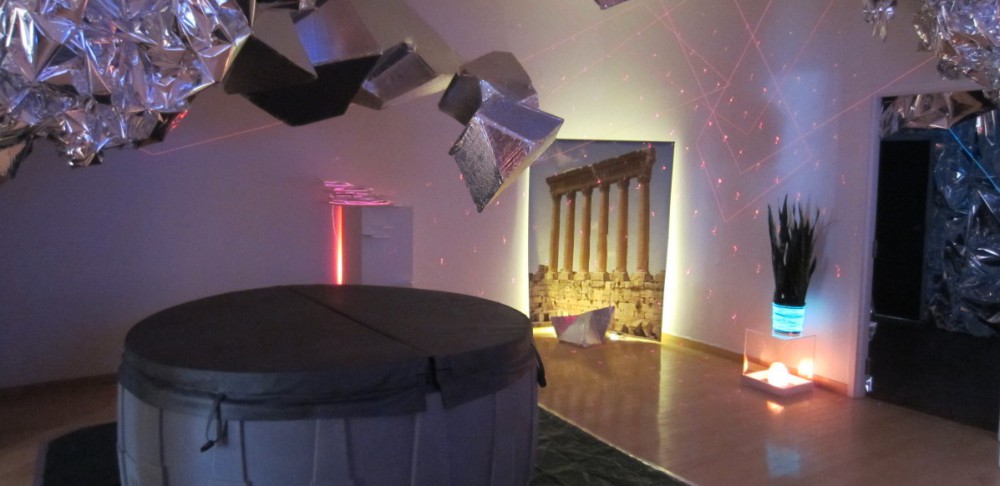For the first part of this assignment, i read the Machine Stops. It really was ahead of its time. I am not sure about what specific genre of science fiction it would be put under, but with the use of air ships, and mention of pistons and respirators, i can’t help but think of it as a Victorian Steampunk piece set in the future. I won’t go into great details on the plot as we’ve all read it, but its set in the future where mankind all live alone underground and a machine takes care of their needs. They’ve become so engrained to the help of the machine that they fear the sunlight, and humans are satisfied living in rooms that are basically cells. The way that people no longer interact with each other, and don’t do anything for themselves really touches on how society is becoming today. While boarding the train (pg. 7), a point is made to show that the man who drops his book is physically unable to simply reach down and pick it up. It really shows how bad they’ve become as people just trample “The Book” which is basically like a holy bible to them.
On page 8-9, when the attendant reaches out to steady Vashti, the outrage really emphasized the point that everyone is by themselves. The humans of this underground society worship the machine as if it’s their god, but will deny it at first. Her son is one of the free thinkers, so to, speak of society and wants to see whats out there. He travels to the surface and finds something pretty amazing. When i think of “The Machine”, i can’t help but think of the Matrix movies, and the drones/the white worm creature that is sent after him by the Mending Apparatus on pg. 17, remind me of the sentinels from the movie.
I think it is one of those works that really show how science fiction writing can predict the future. Many of today’s media seem to draw inspiration from it. When reading about the underground city, i immediately thought of the Morlocks from H.G. Wells’, The Time Machine. In the story, as time goes on, people become more and more withdrawn from each other, and excuses begin to be made as to why interacting with the world and each other is unnecessary. As the machine breaks down, as all machines do, people begin to lose themselves something that can be seen today. We as a society have come to rely greatly on technology. I always laugh when I’m on the train and see the cell phones fly out of peoples pockets as soon as there is service. The people from this story remind me of the humans from the Movie Wall-E. All in their own little bubble and unable to do anything for themselves.
I own Metropolis but have not viewed this extended version. Its been almost 10 years since i last watched it and i think the added soundtrack really fits well with the overall feel of the movie. It was very trippy at times, and had a minimal techno sound to it, particularly around the revolution scenes. Really added a whole extra layer of awesome to a fantastic movie. The movie shares many traits similar to The Machine Stops (TMS), in that they both works that take place in dystopian societies. The difference is that unlike TMS, mankind isn’t weak. Instead, the different classes are far separated with high society leading lives of play, while the lower class have basically become drones.You get a sense of how bad things can get when people are ignored and basic human rights are ignored.
The hero of the story, Freder meets Maria, who shows him that the world is not all that it appears to be. He sees the struggle of the lower class, and wants to help them. His father is against it, and has him followed. A machine man is created and replaces Maria to sow discord among the lower class which is on the verge of revolt. There are many religious undertones in the movie, such as the Whore of Babylon, and the Tower of Babel. There is mention of the seven deadly sins and death, and we see Freder’s decent into madness once Maria is replaced by a machine. The Machine Man/fake Maria is basically the Whore of Babylon, and leads an uprising against Freders father. It really emphasizes how the weak and poor are just pawns in a revenge scheme of a jaded lover. The creator of the Machine Man, Rotwang, hated Freder’s father, to the point that this revolution was set in motion.
One thing that i took away from both stories is that in times of trouble, most of humanity reverts back to a more chaotic nature, where their survival is all that matters. In both pieces, humanity loses it once the technology is damaged. In the end though, at our core, we need the warmth and help of others to survive. In TMS, you could she that Vashti really wanted to be near her son, but she like the rest of the society had become so ingrained with being alone. In Metropolis, when it starts flooding, people realize what really matters and try to save their kids, and in the End, Freder becomes the Heart, the thing that is needed to bring his father and the workers together, as told by Maria.
Its very interesting to see how many famous films, games, books, and other media seem to take inspiration from these works.



